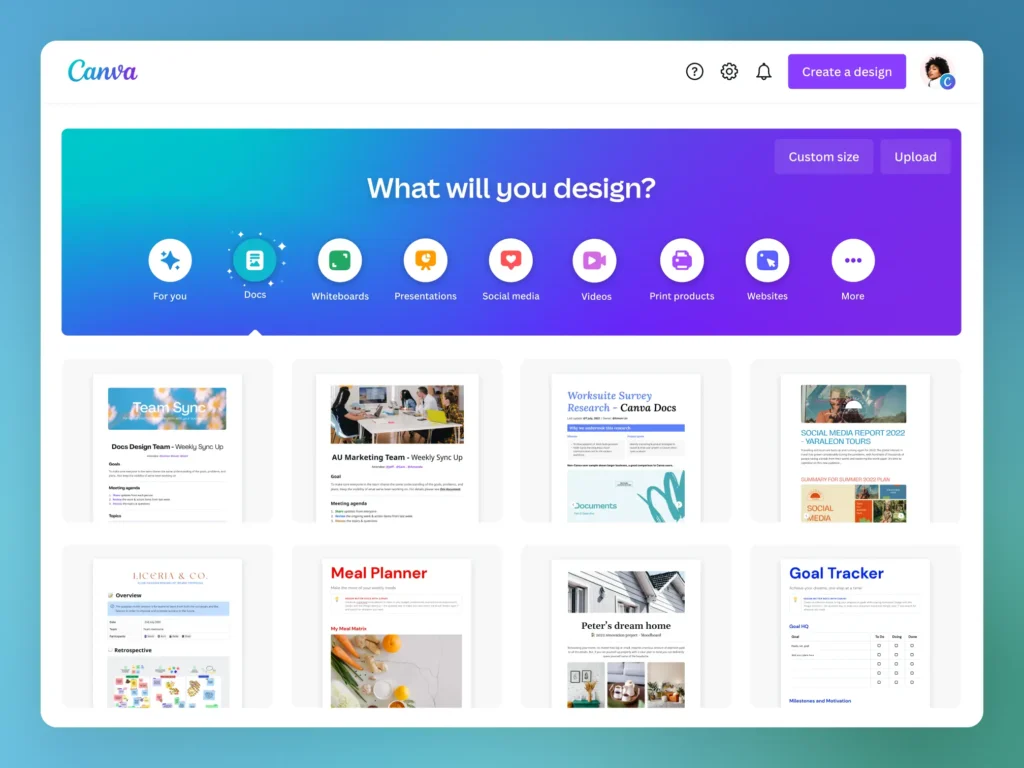
Photo Credits – Canva
Cameron Adams, Co-Founder and Chief Product Officer at Canva, emphasizes that AI is not a threat to the design industry but rather a driving force for innovation. Canva is leveraging AI to enhance its offerings while maintaining a strong focus on data privacy and security.
Canva’s New Enterprise-Focused Approach
Canva’s evolution from a community-focused platform to an enterprise-driven solution marks a significant shift in its strategy. Initially aimed at casual designers, Canva now caters to brands and large enterprises, reflecting a natural progression as the company scales. This transition was catalyzed by the increasing demand for collaborative tools, particularly during the COVID-19 pandemic.
- Canva started as a platform for users who lacked the knowledge of advanced design tools like Adobe Photoshop.
- It allowed users to create designs using simple, easy-to-use tools and visual interfaces.
- The platform was primarily used for creating birthday invitations, office presentations, pamphlets, marketing designs, and social media posts.
- Canva’s user-focused approach led to consistent growth, with 100 million monthly active users reached within eight years, and 190 million by 2024.
- In 2024, Canva introduced a new suite of offerings aimed at brands and large enterprises, marking a shift towards a more enterprise-centric approach.
- This move was driven by the increasing popularity of Canva in corporate circles, especially during the COVID-19 pandemic.
Deep Dive Into Canva’s AI Integration
Canva has integrated a wide range of AI tools into its platform, enhancing its capabilities and offering users more options for design creation. The company uses a combination of in-house machine learning tools and partnerships with leading AI firms to power its AI features.
- Canva’s AI features include a text-to-image generator, a presentation generator, and an AI-powered photo editor.
- The company uses OpenAI’s large language models (LLMs) for text-related AI features, such as adding, changing, summarizing, or expanding text.
- Canva has partnered with Google to use its LLM for video-related AI features, particularly for transition effects.
- The company has also launched a Canva developer platform, allowing developers to create new AI apps that users can benefit from.
Focus on Data Security
With the shift towards enterprise clients, Canva has implemented stringent data security and privacy measures to protect user data and prevent unauthorized use.
- Canva protects user data from bad actors and ensures it is not used for AI training without consent.
- The company has introduced Canva Shield, a tool that provides indemnification for select enterprise clients for all AI outputs at no extra cost.
- Canva gives users control over their data, allowing them to turn AI features on or off as needed, ensuring transparency and security.
The Problem of Deepfakes
AI-generated content has raised concerns about the potential for deepfakes, which are synthetically created media that mimic real people, places, or events. Canva is taking steps to address this issue and ensure transparency in AI-generated content.
- Canva uses metadata in all AI-generated content to indicate how it was created.
- The company is actively exploring new technologies and standards for marking AI-generated content to ensure transparency and prevent the misuse of AI.
Can AI Replace Canva?
While AI has made design and image creation more accessible, Canva does not see AI as a threat to its business model. Instead, AI is viewed as a tool to further Canva’s mission of empowering the world to design.
- Canva’s mission has always been to empower people to create, and AI is seen as a means to achieve this more efficiently.
- The company continues to innovate and integrate new technologies, including AI, to enhance its product offerings and empower users.
The Balancing Act
Canva’s expansion into the enterprise market presents new challenges, particularly in maintaining the pace of innovation and catering to the diverse needs of businesses in different markets. The company is proactively addressing these challenges by staying engaged with enterprise customers and continuously improving its offerings.
- Canva’s enterprise focus requires the company to provide businesses with the right tools and creative templates while maintaining its reputation for innovation.
- The company is actively listening to feedback from enterprise customers and incorporating their feature requests into the Canva Enterprise package.
- Despite the challenges, Canva remains committed to releasing new features that improve user efficiency and design quality.
Conclusion
Canva’s journey from a community-focused platform to an enterprise-centric solution illustrates its adaptability and foresight in a rapidly evolving digital landscape. By embracing AI as a complementary force rather than a competitor, Canva continues to empower users across the spectrum—from casual designers to large corporations. The company’s ongoing commitment to innovation, data security, and user satisfaction positions it to remain a significant player in the design industry, ensuring that it not only meets but exceeds the expectations of its diverse user base.
